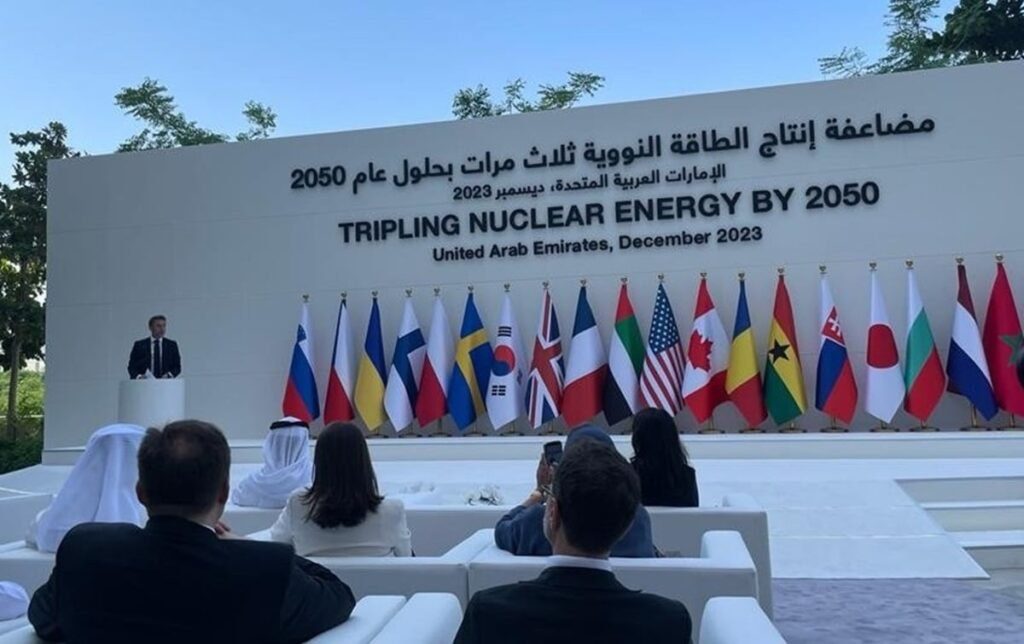In a historic announcement during COP28, global leaders have pledged to triple the world’s nuclear capacity by 2050 as a key component of the transition to net zero.
The Heads of State from nine countries, including Canada, Czechia, Ghana, Finland, Hungary, Japan, Moldova, Mongolia, Morocco, and the Netherlands, have officially endorsed the Declaration to Triple Nuclear Energy Capacity by 2050. A total of 21 countries, including Poland, the Republic of Korea, Romania, Slovakia, Slovenia, Ukraine, UAE, the United States of America, and the United Kingdom, have backed this declaration at the ceremony.
COP28 witnessed a significant nuclear agreement with the Declaration highlighting the role of nuclear energy as a clean and reliable source to meet energy needs, including clean electrons, molecules such as steam and hydrogen, and process heat, essential for achieving climate goals.
The ceremony, held at the Rove Hotel during COP28 in Dubai, gathered international dignitaries and industry leaders to discuss actions needed to address climate change and maintain global temperatures within 1.5 degrees of pre-industrial levels.
Declaration Recognizes Vital Role of Nuclear Energy in Global Net-Zero Emissions Effort
As global energy systems contribute to about 70% of total carbon emissions, and power production alone generates nearly 30% of total emissions, the Declaration acknowledges the vital role of nuclear energy in achieving global net-zero greenhouse gas emissions.
The Declaration recognizes nuclear energy as the second-largest source of clean, dispatchable baseload power globally and the largest source of clean electricity for Organisation for Economic Co-operation and Development (OECD) nations. Expert analyses from various organisations, including the OECD Nuclear Energy Agency, the World Nuclear Association, the Intergovernmental Panel on Climate Change, and the International Energy Agency (IEA), stress the need for significant expansion of nuclear energy capacity to meet emissions reduction goals.
Encouraging partnerships, commitments, and innovations, the Declaration calls on additional governments and financial organisations, including the World Bank, to provide the necessary political will and resources for this expansion.
Suhail Al Mazrouei, Minister of Energy and Infrastructure, UAE, emphasises the importance of nuclear energy as a clean and stable baseload energy source. The UAE, a leader in the global clean energy transition, has added the most clean electricity per capita over the last five years, with 75% coming from nuclear energy. The Barakah Nuclear Energy Plant in Abu Dhabi has played a crucial role in this, commencing commercial operations of its first unit in 2021, with Unit 4 set to come online in 2024.
The UAE’s commitment to nuclear energy aligns with its strategy to create a secure and sustainable energy mix for its net-zero economy, reinforcing its dedication to achieving Net Zero by 2050, according to Arabian Business.


